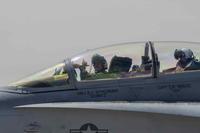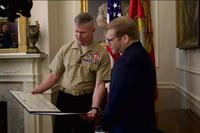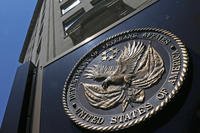"The roots of the Abu Ghraib prison scandal lie not in the criminal inclinations of a few Army reservists," reports Sy Hersh in tomorrow's New Yorker, "but in a decision, approved last year by Secretary of Defense Donald Rumsfeld, to expand a highly secret operation, which had been focussed on the hunt for Al Qaeda, to the interrogation of prisoners in Iraq. Rumsfeld's decision embittered the American intelligence community, damaged the effectiveness of lite combat units, and hurt Americas prospects in the war on terror."
According to interviews with several past and present American intelligence officials, the Pentagon?s operation, known inside the intelligence community by several code words, including Copper Green, encouraged physical coercion and sexual humiliation of Iraqi prisoners in an effort to generate more intelligence about the growing insurgency in Iraq. A senior C.I.A. official, in confirming the details of this account last week, said that the operation stemmed from Rumsfelds long-standing desire to wrest control of Americas clandestine and paramilitary operations from the C.I.A.
Rumsfeld, during appearances last week before Congress to testify about Abu Ghraib, was precluded by law from explicitly mentioning highly secret matters in an unclassified session. But he conveyed the message that he was telling the public all that he knew about the story. He said, Any suggestion that there is not a full, deep awareness of what has happened, and the damage it has done, I think, would be a misunderstanding. The senior C.I.A. official, asked about Rumsfelds testimony and that of Stephen Cambone, his Under-Secretary for Intelligence, said, "Some people think you can bullshit anyone."
THERE'S MORE: A Newsweek report comes to similar conclusions. "The Bush administration created a bold legal framework to justify this system of interrogation," according the magazine. "What started as a carefully thought-out, if aggressive, policy of interrogation in a covert wardesigned mainly for use by a handful of CIA professionalsevolved into ever-more ungoverned tactics that ended up in the hands of untrained MPs in a big, hot war. Originally, Geneva Conventions protections were stripped only from Qaeda and Taliban prisoners. But later Rumsfeld himself, impressed by the success of techniques used against Qaeda suspects at Guantanamo Bay, seemingly set in motion a process that led to their use in Iraq."
AND MORE: "It's pure, unadulterated fantasy," a Pentagon spokesperson says of Hersh's report. "We don't discuss covert programs, but nothing in any covert program would have led anyone to sanction activity like what was seen on those videos."
To which Phil Carter responds, "This isn't exactly an unequivocal denial. For one thing, it leaves open the possibility that the Pentagon might have sanctioned what was depicted in the many photographs now in the public domain."
Josh Marshall adds, "Rumsfeld spokesman Larry Di Rita's widely-quoted statement -- 'Assertions apparently being made in the latest New Yorker article on Abu Ghraib and the abuse of Iraqi detainees are outlandish, conspiratorial, and filled with error and anonymous conjecture.' -- isn't a denial, it's splutter -- a classic non-denial denial."








